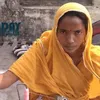This husband-wife duo’s startup manufactures sanitary pads from banana stems that biodegrades within 140 days
To make the product more accessible, the startup donates one sanitary napkin for each one purchased under its initiative called, ‘Buy One, Give One’.
Menstrual health and hygiene remains a top concern in India, especially in rural areas. Then there is also issue of disposal of sanitary pads so as not to harm the environment. To address both, a couple from Gujarat, Chirag and Hetal Virani are working towards solving both issues at the same time. They produce biodegradable sanitary pads using discarded banana stems.
Started in 2017, the couple began manufacturing these eco-friendly sanitary pads under the brand name Sparkle. To make these pads more accessible, the startup donates one sanitary napkin for each napkin purchased under its initiative called, ‘Buy One, Give One’, reports The Burnin.

Chirag and Hetal Virani (Image: NDTV)
In terms of cost, the upper cost is at Rs 23.50 per pad, but to reach out to a wider user base, the couple plans to launch their new product at Rs 9.99 per pad by March 2020. Till date, the couple has sold 50,000 pads and thanks to the banana fibre used in making the pad, the pads biodegrades within 140 days.
Chirag told NDTV,
“Our innovation is inspired by “Make In India” and “Swachh Bharat Mission”, we have the potential to transform over 64 million tonnes of banana stem agro waste into sanitary pads, baby diapers, decorative veneer, currency paper, and organic fertiliser. We can also eliminate around one million tonnes of sanitary pad waste per year in India with this innovation. We hope banana fibre will soon replace plastic as the main component in sanitary pads, globally.”
Their academic background also helped a lot in developing the product. Chirag who has a background in Mechanical Engineering developed the machine for manufacturing. Hetal with her background in Accountancy worked around the cost to make the pads affordable and market the product.
The startup works with NGOs and schools to create awareness and raise concerns around menstrual health and hygiene.
Do you have an interesting story to share? Please write to us at tci@yourstory.com. To stay updated with more positive news, please connect with us on Facebook and Twitter.







